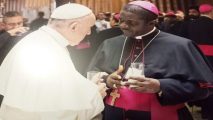Categories
Archives
- April 2025
- March 2025
- February 2025
- January 2025
- December 2024
- November 2024
- October 2024
- September 2024
- August 2024
- July 2024
- June 2024
- May 2024
- April 2024
- March 2024
- February 2024
- January 2024
- December 2023
- November 2023
- October 2023
- September 2023
- August 2023
- July 2023
- June 2023
- May 2023
- April 2023
- March 2023
- February 2023
- January 2023
- December 2022
- November 2022
- October 2022
- September 2022
- August 2022
- July 2022
- June 2022
- May 2022
- April 2022
- March 2022
- February 2022
- January 2022
- December 2021
- November 2021
- October 2021
- September 2021
- August 2021
- July 2021
- June 2021
- May 2021
- April 2021
- March 2021
- February 2021
- January 2021
- December 2020
- November 2020
- October 2020
- September 2020
- August 2020
- July 2020
- June 2020
- May 2020
- April 2020
- March 2020
- February 2020
- January 2020
- December 2019
- November 2019
- October 2019
- September 2019
- August 2019
- July 2019
- June 2019
- May 2019
- April 2019
- March 2019
- February 2019
- January 2019
- December 2018
- November 2018
- October 2018
- September 2018
- August 2018
- July 2018
- June 2018
- May 2018
- April 2018
- March 2018
- February 2018
- January 2018
- December 2017
- November 2017
- October 2017
- September 2017
- August 2017
- July 2017
- June 2017
- May 2017
- April 2017
- March 2017
- February 2017
- January 2017
- December 2016
- November 2016
- October 2016
- September 2016
- August 2016
- July 2016
- June 2016
Featured
 Burkina Faso: Where vision meets discipline
Burkina Faso: Where vision meets discipline  Prosecution of journalists in Cameroon: European Parliament says enough red flags have been ignored
Prosecution of journalists in Cameroon: European Parliament says enough red flags have been ignored  1982-2025: How long will Biya hang on?
1982-2025: How long will Biya hang on?  How Biya and Archbishop Nkea protected the sanctity of the family in Cameroon
How Biya and Archbishop Nkea protected the sanctity of the family in Cameroon  October Presidential Election: Will 92-year-old Biya be re-elected?
October Presidential Election: Will 92-year-old Biya be re-elected?
Most Commented Posts
 4 Anglophone detainees killed in Yaounde
4 Anglophone detainees killed in Yaounde
18 comments Chantal Biya says she will return to Cameroon if General Ivo Yenwo, Martin Belinga Eboutou and Ferdinand Ngoh Ngoh are sacked
Chantal Biya says she will return to Cameroon if General Ivo Yenwo, Martin Belinga Eboutou and Ferdinand Ngoh Ngoh are sacked
13 comments The Anglophone Problem – When Facts don’t Lie
The Anglophone Problem – When Facts don’t Lie
12 comments Anglophone Nationalism: Barrister Eyambe says “hidden plans are at work”
Anglophone Nationalism: Barrister Eyambe says “hidden plans are at work”
12 comments Largest wave of arrest by BIR in Bamenda
Largest wave of arrest by BIR in Bamenda
10 comments
Latest Tweets
Featured
-

Who will be the next pope? Key candidates in an unpredictable process
-

Pope Francis going home to rest!
-

Rwanda and DR Congo set May 2 deadline for peace deal
-

Botswana president rebukes Biya, other African leaders clinging to power
-

Man Utd strike agreement with Cameroon wonderkid
-

Ambazonia Crisis: Pope Francis enduring call for peace, now a legacy
-

Vatican: More than 20,000 gather as mourners file past Pope Francis’s open coffin
© Cameroon Concord News 2025
2, July 2019
Bebe Manga: An Angelic Voice with a Social Conscience 0
Few even knew she hailed from Manyu Division in the Southwest region, but her exceptionally creative impulses, great vocal versatility and revitalizing voice captured the hearts of music aficionados. Elizabeth Bessem Manga, known the world over as Bebe Manga was a cultural icon of awesome proportions. She died Friday, July 1, 2011, from a heart attack in Douala, and was buried on July 30, 2011. The glowing tributes that trailed her demise, was testimony; if at all any was needed, that in this woman of grace, yet modest persona, Manyu and Cameroon indeed, lost one of their own!
On stage, Bebe Manga was a natural and consummate performer; a larger-than-life figure who bestrode the Cameroonian music landscape like the colossus that she was; captivating her fans with an angelic voice, a magnetic smile and a dynamic vocal range that could induce delusions of intimate contact.
Bebe Manga could sing Makossa with the rendition of a native Douala speaker, but her Manyu kith and kin remember her for some of the most enchanting songs in her native dialect, distinguishable by the epigrammatic blend of Kenyang and English language. Indeed her music was a language of universal appeal, demonstrating great versatility in a variety of languages and settings that touched people across different nations; from Mota Benama through Na Meya to Alice Agbor and Bele Sombo.
Music lovers, the world over, adored Bebe Manga because of her inspiring lyrics and impassioned music. But her personal life was an epic tragedy of domestic upheaval, “self-exile” and sometimes, torment. A true Bayangi woman to the core in word and in deed; her music reverberated with consciousness about the real conditions of women in their perennial quest for self-emancipation. Her traditional Bayang songs delivered with a Makossa rendition captured the fundamental values of the Manyu character in all its many contradictions.
Born to sing
Bebe Manga was born on November 27, 1948 and hails from Tinto, Upper Bayang Sub-Division in Manyu Division, South West region. She told The Herald in a 1999 interview that her musical career which dates back to 1979 at the then Bar Americain cabaret in Douala was the by-product of an “accident” She had gone on a routine relaxation outing with friends, when one of the bar performers staged a belated rendition of the song “kissa kissa” which happened to be one of her favorite songs. Her entourage exhorted the Bar owner that Bebe Manga could sing better, and the manager took the challenge and gave her the chance. She produced a rhapsodic and scintillating performance that captivated and held the audience spellbound. The Bar manager could not help, but hire her instantly! And so began her roller-coaster career which took her to several African countries – Zaire, Togo, Senegal, Mali, Burkina Faso, and Ivory Coast.
International Fame
It was in Ivory Coast where the proprietor of the “Son de Guitare” cabaret/night club where she sang, gave her the sobriquet “Bebe.” She said since she had become the crowd favourite at the nightclub, the owner started referring to her as “Mon Bebe Prefere.” And soon everyone started calling her “Bebe”, and eventually the name stuck. Her meteoric rise to the top came in 1980 when she replayed Ebanda Manfred’s 1962 radio hit, “Amie” (French for “friend”), using her golden voice to transform a hitherto unknown song into a worldwide classic that hit the top music charts.
Her version of that song called “Amio” earned her the “Maracas D’or” award from the music production and marketing corporation, SACEM. In the last two decades, Amio has been replayed in different languages by musicians in Europe, the Caribbean, Latin and North America, and Africa, amongst them André Astasié, Nayanka Bell, Manu Dibango, Papa Wemba, Monique Séka and Jackie Biho. She was voted one of the best all time African artists.
A great entertainer turned humanist
Bebe Manga was a musician first and foremost. Her music not only brought her fame and fortune but also became vocal symbols to raise awareness about the plight of children. Although she never had any biological children herself, she raised so many, who called her, mum. “I think the Almighty God gave me a voice, which means He wanted me to sing; which is what has made me famous…I am very grateful and I cannot ask for more because only God knows why He decided that I should not have children.” Bebe Manga was also a philanthropist, believing in the cause of humanity and extending a hand of friendship to the needy and less privileged.
She also endured some bizarre domestic and showbiz episodes. When her marriage to the famed Dr. Ako Defang (AD) Mengot collapsed, she succumbed to a kind of emotional paralysis yet this part of her life, seldom discussed, became a major source of inspiration for some of her songs dealing with society’s foibles, such as domestic violence, marital infidelity, polygamy, inter-tribal marriages, death and life beyond this realm. In showbiz, she once failed to appear for a show in Abidjan, Ivory Coast and when she returned years later, she was jailed for a night until the outstanding financial penalty was paid on her behalf.
She finally returned to Cameroon in the 1990s and became a first choice performer at national culture and arts festivals but the music business had moved on and, despite working with stars like Manu Dibango and Tom Yoms (also of blessed memory), the opportunities for giving concerts had diminished. She was planning to grace the Manyu Elements Cultural Association (MECA) Canada convention, when she suffered a heart attack and was rushed to the Douala Laquintini hospital where Doctors were unable to revive her.
An artist with a social conscience
Bebe Manga’s music sprang from deep inside her soul. Millions of people were inspired by this charismatic, electrifying Manyu woman with a matchless ability to touch the human spirit with her moving voice. Her voice as the signature song in the movie Potent Secrets undoubtedly raised the profile of the film.
Bebe Manga produced several albums and videos with an audience reaching across Cameroon, West and Central Africa, Europe and North America. Her lyrics thunder with rare Bayang resonance, as she sang from the very depths of her heart, which in turn struck a chord deep down our soul. She leaves behind a rich legacy. The best way to pay homage to the towering memory of Bebe Manga is to uphold the values that she so selflessly embodied.
Love was the essence of Bebe Manga‘s life. She gave it to all who came her way in full measure. In her songs, in her smile and her sweet personality, Bebe Manga conveyed great warmth. Her life was full of ups and downs: but she was a true artist; a great entertainer with a social conscience. While we celebrate the life she lived, we should equally ask ourselves what abiding qualities we can learn from her rich and meaningful life. Cameroon will produce other great singers and greatly talented women. It is however doubtful that Cameroon will produce another Bebe Manga. Adieu Golden Voice; may you reincarnate as a Manyu woman!
By Valerian Ekinneh Agbaw-Ebai, Boston USA